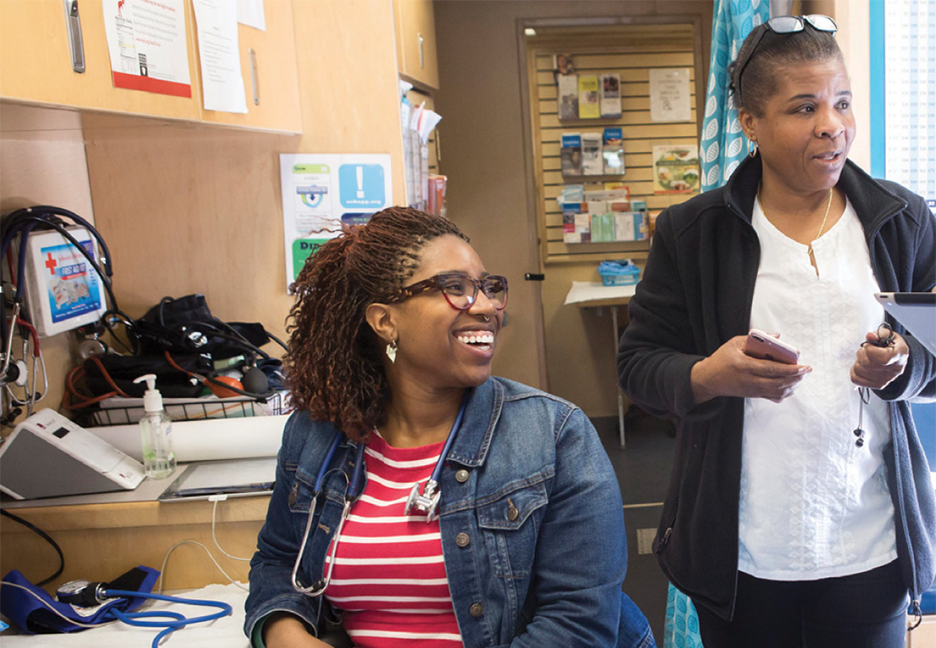
By Bethany Romano, MBA'17
As a first-year PhD student concentrating in health, Yaminette Diaz-Linhart is eager to span boundaries and disciplines in the service of health systems improvement.
A public health social worker by training, Diaz- Linhart jokes that her propensity to juggle multiple jobs and volunteer positions is “classic social worker. My husband teases me that instead of having hobbies, I work, which is absolutely true,” she admits.
Diaz-Linhart enrolled in the Heller PhD program to research the role of community health workers, a critical workforce that fills the void between clinicians, patients and families. Before joining Heller, she had a full-time position as a program director at Boston Medical Center and a side gig at the Massachusetts State House, where she ran a special commission on postpartum depression. Before the State House, her side gig was as a therapist.

Her other trick? Always showing up. “The more you show up, the more people will be curious about your work and remember your research when it’s important to them,” she says. So when legislators at the Mass. State House needed someone with Diaz-Linhart’s background to serve on the Special Legislative Commission on Behavioral Health Promotion and Upstream Prevention, all those years of showing up led to her becoming a committee designee — which she took on in addition to her Heller PhD coursework.
This Promote Prevent Commission, led by state Rep. James Cantwell, aimed to provide concrete policy recommendations to reduce mental health and substance use issues throughout the Commonwealth. The final report, released in April 2018, includes a broad array of recommendations to target behavioral health promotion and prevention across the lifespan.
“My role was to think about these interventions from the public health social work perspective,” says Diaz-Linhart. “We met every month, brought in guest speakers and experts, held public hearings and met with existing behavioral health programs. Due to my professional background and my experience managing multiple stakeholders, I became the chair of the early intervention subcommittee, which was pretty intense. Everyone had such different perspectives; it was a really interesting and rewarding learning experience.”
Diaz-Linhart’s work at Boston Medical Center informed her decision to include recommendations around behavioral health integration in pediatric settings to improve access to behavioral health for families. Her subcommittee also included recommendations to address social determinants of health and health equity through various avenues, including school behavioral health reforms, increased economic security and housing stability for families.
The final report includes dozens of recommendations spanning behavioral health promotion and prevention in state government, funding strategies, evidence-based programming, schools, the workforce and community leadership. With this comprehensive report, the committee hopes that the Commonwealth will not only reduce mental health and substance use issues but also foster healthy environments in which residents can thrive and succeed.
“It felt kind of amazing to put all of that into the report,” says Diaz-Linhart. “Now it’s up to policymakers to translate it into legislation.”
